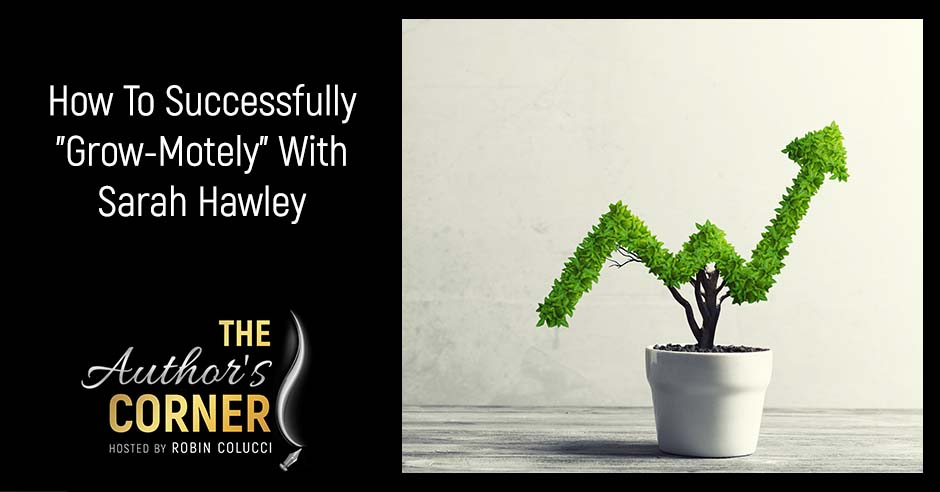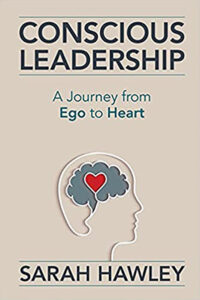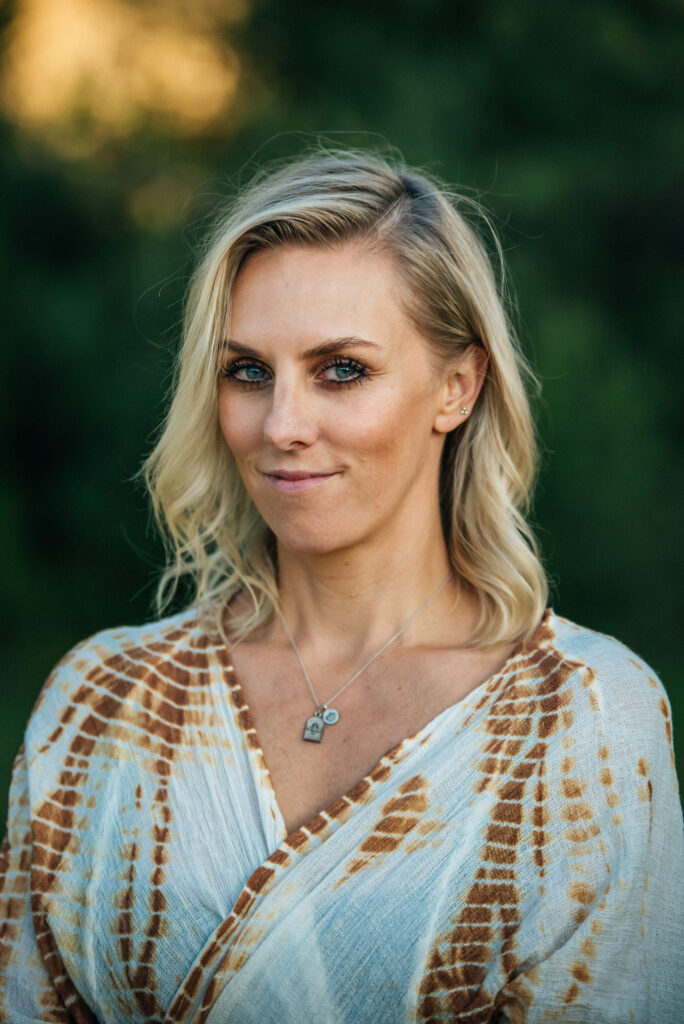
Even before the pandemic started, there were already people who were doing remote work for various reasons, including our guest today, Sarah Hawley. She is a serial entrepreneur, creating and selling multiple companies for over seven figures. She’s currently the Founder and CEO of Growmotely, which connects conscious companies and professionals into long-term remote jobs. Sarah was able to release her full potential to be a great leader through remote work and had increased productivity within her team. Learn why flexibility is a key factor for employee satisfaction and business success and find out why and how you can improve work processes, especially if you are looking for a remote job that’s right for you!
—
Watch the episode here
Listen to the podcast here
How To Successfully “Grow-Motely” With Sarah Hawley
I want to talk about an issue that becomes especially compelling once you have written and published a book and that is the need to get more help to expand your team. If you are used to being a solopreneur and handling everything on your own, making that transition into author where you’re not just running your business but all of a sudden, you’re promoting a book, coordinating more speaking gigs, media appearances and the list goes on. With the growth that you’ll experience as an author, you need to bring on competent people to help you sustain your success. With that, I have invited to be with us, Sarah Hawley.
Sarah is a serial entrepreneur who has started and sold multiple companies for over seven figures. She is the Founder and CEO of Growmotely, which connects conscious companies and professionals and helps match them into long-term working relationships. In 2021, her book, Conscious Leadership: A Journey From Ego to Heart was released by Mandala Tree Press.
She’s also the Cofounder of the League of Extraordinary Women, a community that supports women entrepreneurship. She is going to speak with us about what it looks like to add a team member, what some of the benefits are some of the potential challenges and how to deal with them. I hope that you will read with great intent and interest. Enjoy.
—
Sarah, welcome to the show.
Robin, it’s great to be here. Thanks for having me.
I’m so excited to have you besides the fact that you’re so much fun. When I think about the life of an author, a lot of people underestimate how much business there is to do inside of being an author. You earn that mantle, get a book deal and get the book published but you can’t just walk away from it and expect it to keep going.
There are all these added elements to your activities that you need to absorb. If you already own a business and have a team, maybe there’s a mechanism in place to support that but if you don’t, what do you do? That’s why I got so inspired when we first chatted to invite you here to be with us. Tell us a little bit about what led you to found Growmotely.
Entrepreneurship can bring freedom to different areas of life. You are in charge of your own time and decisions while making money. Share on XIt’s such a fun story and many will relate to parts of it. I became an entrepreneur in around 2009, early 2010. Freedom is one of my highest values. Becoming an entrepreneur, being able to be in charge of myself, on my own time and all of that was very in alignment. Fast forward a couple of years down the track, I feel like I don’t have anywhere near as much freedom as I wanted.
To some degree, I do and it’s nice to know that I’m making my own money and the one making the decisions but I was working long hours in an office and showing up for long days. I got to a point where I was like, “I love to travel so much.” Part of freedom for me is to be out in the world and to be experiencing everything that this wonderful planet has to offer. I wasn’t able to do that as much.
In 2014, I’d had enough and I was like, “I’m ready to get back out in the world. I want to move to the US and live in other parts of the world. I don’t want to be stuck here because I have a business.” I decided to turn my company’s remote and I had a couple of businesses at that time. Back then, it was very different being remote. It wasn’t normal.
There were freelances and there were some people who may be working as consultants on their own remotely but businesses and teams weren’t anywhere nearby. Going into remote work and turning my company remote fully flexible global was the key that unlocked the door for me to become a much better leader, have a much happier, higher-performing team and improved culture. It unlocks the door to a lot of happiness and well-being both for myself and my team. It was a magical experience to me.
I was able to move to the US, which is where I live in 2016 and kept growing my companies. I ended up growing and selling three businesses along the way. Proper legit businesses with teams of 10 to 20 people weren’t huge but they were successful financial planning businesses that I was able to grow to a point and sell. In 2018, I decided I was ready to get out of finance and do something different as an entrepreneur. Along the way, I had formed a small global recruitment company with three other cofounders who also had remote businesses because there was no global remote recruitment company back then.

We made our own little company that would do all of our recruiting for our companies. We had a few clients with a very small business. None of those were very interested in that business. Over the years, I bought them out. By the end of 2018, I was left holding the company and having sold my final financial planning business. I was like, “I’m going to go into this remote work thing and see what it’s all about.”
I felt called to pursue it as a business and career. I dived into it and saw where I could take it because I was passionate about it. It transformed my life in so many ways. About halfway through 2019, I understood what we could do with turning the service aspect of our business into a technology platform. I started working on what has become Growmotely. The most fun part about the story is we raised a small pre-seed round and closed that on March 13th, 2020, which was the Friday before we went into lockdown.
That was the day my son was flying home from Italy. That was the last possible day that he could get out. He stayed there and then came home.
It was the day that I decided I wasn’t going back to Australia and I was going to stay here in the US. That was a big moment for me, realizing that this has certainly become my home. We quickly, in the next month or two, realized that the entire world experience remote work. This is no longer a ten-year time horizon. I knew it would come.
I’ve been an advocate of remote work for many years as well. If for nothing else, it’s got to be better for the carbon footprint. Why are we driving to and from work every day? I’m fine. I’m much more productive at home than I ever was in an office.
The amount of time that I used to waste that was getting to and from the office, talking with people, going on lunch breaks. I don’t need to do any of that.
Once the world went remote, you were perfectly poised to absorb that demand. I would imagine you get flooded. I’m curious. Do you realize that’s what they needed?
It’s been an amazing journey but we had only closed that seed round. We hadn’t built our tech platform at that time. The stressor for me was like, “We got to go fast. This is not a ten-year time horizon anymore. This has happened. We’re already there and I wanted my product live on the market immediately, which is not possible.”
I got to find some dev shop that could help us build it because I didn’t even have a team yet. I didn’t have a cofounder, CTO or anything. I outsourced the development to get moving on it and then started looking for a CTO, which I found Chris Tirpak, who joined me in August 2020. He’s unbelievable and then he took over the project, built our in-house dev team and we kept going from there.
We didn’t end up getting the product live until April 2021. That was a challenging time for me as a business owner in that. I’ve always been in service businesses where if you have the idea, you can start selling that service and deliver it tomorrow. Building technology is a whole different thing. It’s this big, long investment of time, energy and financial capital before you can go live.
It was a big learning curve for me on that front but generally speaking, even running our pre-launch campaign, there was so much interest around what we were doing. We had over 5,000 people join with no marketing spend, just following along and wanting to be part of what we were doing. We’ve grown from success to success since launch. We’re focused on our ecosystem and a community-led growth approach.
We embraced and embodied that from day one. It’s paying off because many people are excited and engaged by what we’re doing. It’s been the most amazing journey, Robin. These have been the best years of my life. I say that with compassion for the challenge that a lot of people have faced. Personally, aside from the existing illness, everything else is a chance to rethink how we’ve been doing things, to reset and redefine humanity moving forward. For me, it’s a big wow. This is fun and exciting.
There’s excitement on both sides, both on the hirer and the hirees. You have an international pool of talent. Say a little bit more about that because that’s super cool as well. You’ve got 13,000, I think it is.
We’ve got over 13,000 remote professionals registered. We have about 30,000 with their email addresses. They’re getting notified of job openings and things but 13,000 already have profiles on the platform. It’s very exciting.
The more diverse our teams can be, the more we are able to connect with our audience as an organization and a brand. Share on XWhat do you see are some of the advantages of that?
Growmotely is designed for any company to hire any person anywhere in the world. It’s breaking down all those previous borders to talent, where we were hiring only locally. As professionals, we had to find a company that we aligned with close to home and vice versa building companies. We had to find these amazing, passionate, excited, skilled and experienced people in our local area.
We don’t need to anymore and that’s what excites me. In 2021, nobody has to work a job they hate anymore. Whatever it is that you love doing, you can find the company out there that does that thing in a way that you like to show up with a bunch of great people that you’ll thrive with. That’s possible. From a business owner’s perspective, on the flip side, it’s so exciting for me to be able to go out and go anywhere in the world.
Whoever’s most passionate about doing what we do, come and be part of it. I find the most loyal, excited, happy and thriving team. This is what I’m excited to bring to other small business owners and entrepreneurs because it is hard. Finding great talent, building a great team and being a great leader is not an easy thing but remote work unlocks a lot of signing opportunities in that realm.
Especially where there’s a clear labor shortage here in the US. It’s incredible to have access to the world. Many talented people would be thrilled to be able to contribute in that little way.
It takes diversity inclusion to a whole new level. Having a truly diverse team where you have people from all walks of life, different skin colors ad cultural backgrounds. We were talking with the Founder of Namal, which is an organization that upskills and preps refugees for remote work. We’re partnering with that organization and that is exciting to me, adding people into your organization that has that level of diversity.
People with disabilities tended to be very overlooked because of a physical obvious something when they walked into an interview. Oftentimes, you can’t see that. It removes some of those biases, which gives an opportunity for people to show up and be like, “Maybe I’m in a wheelchair or I have some damage to one side of my body where it doesn’t function as well. Whatever it might be, it does not preclude me from showing up and being a valuable contribution and part of this team.”
The more diverse our teams can be, the more we are as an organization and a brand, able to connect with our audience. Even though we talk about target marketing and all of that, that’s important to get your nation but diversity within a team breeds empathy, compassion, connection and understanding. It’s invaluable. What’s exciting about where we’re at is those small companies can have that level of diversity. An 8-person team can have 8 people from 8 different countries and work well. That’s amazing and was never possible before.
As I understand it, the data is very clear. Diverse teams are higher performing better for the bottom line than a team with the most. Let me ask you this because I started as a solopreneur and in a way, an author is like a solopreneur. Even if it’s an author, who’s a CEO of a company, if they author business, they’re probably a solopreneur. It can be different even if you’re used to managing a team inside of a company.

Having an assistant to help you with some of this authory thing that you have to do, following up and getting booked on a podcast or sending a copy of your book to somebody. These little things can take time away that you don’t have. It can be challenging figuring out how would you know you’re picking the right person. What are some of the mistakes that you see that people make in making hiring decisions?
One of the biggest mistakes I see, particularly with the solopreneur making their first hire is hiring a mini-me versus somebody who has opposing and complementary skills. It can be a blind spot where we see someone who’s a mini version of us like, “They were up and coming. They lack all the same things we do. They show up in the same way as us. This is going to be amazing. I need another version of me. I need a clone of myself.” Rather than going like, “I do all the things. These are the five things that I love doing and I’m stellar at. Here are the five things that I hate doing. I would love someone else to do it and hire for that.” That way, you both get to live in your zone of genius.
What happens when we hire the mini-me is we’re fighting for the good things that we want to do. They both want to do the same stuff with a lot of conflicts. Often resentment, because that person has also entered the dynamic, looking up to you going, “I want to be you and be like you one day. I’m coming with you because you’re showing me what it could be.” That’s not the career path that’s on offer. That person needs to go out and find their way to that. Especially when it’s that first hire, what you’re looking for is someone different who can handle all the stuff that you’re not necessarily good at. That’s the most common mistake I see.
There are two questions here. This is a huge question. How do you help companies find and retain the right talent? First of all, finding the right talent in the first place, you’re investing some time, money and effort there but making sure you got the right talent that you want to keep and then retaining it is huge because it’s so expensive to replace a person and finding one. Talk a little bit about it because you have a lot of mechanisms in place that support both the company and the employee.
It’s quite devastating on a lot of levels when we make a mis-hire or when we hire someone who’s not the right fit. It does happen and I offer that because we’re not in our business journeys. We’re not going to get every single hire, even with specialties in culture matching and recruitment. I’m not going to put on my website that we guarantee we’ll get every 100% hired. It happens.
We aim to reduce that gap as much as physically possible. There is a financial impact because usually, if it’s the wrong person, all of the time that you’ve been paying their salary, they’re not performing at the right that they would need to. There’s that waste and then there’s the downtime between finding the other people but there’s also that emotional and energetic drain. That’s what makes a big toll.
A lot of the time, it’s what burns people. We see a lot of trauma for leaders around not even wanting to make another hire because they feel devastated by the way this went down and how it didn’t work out or whatever it might be. It’s important to acknowledge that’s a very real thing. It’s very hard, especially for smaller businesses. When you’re making those first few hires, if they don’t work out, it’s emotionally and energetically draining, not to mention the financial impact.
To keep your head up, if that has happened to you, keep going because we do get better at it over time but how we help people as a starting point is focusing on culture. Understanding that, especially in 2021 and with Millennials quickly representing the lodge as part of the workforce, this is not nice to have anymore. It is non-negotiable.
People want to work in a place that matches the way they want to show up every day. What that means is they will feel, seen, valued, heard, as though they belong. That’s what we all want as human beings. There is not this perfect culture and this is how we all need to be but it comes down to, “Where is the right place for me that matches how I am.”
Values are culture statements. Share on XI would offer in what we aim to do through our technology and also some of the services we provide to businesses is to understand who your culture is as an organization and be able to own it, comfortable with it and communicate it clearly to your audience. When you set up your company, you put in your values, vision, mission and that gets communicated out to people who are looking to work for you.
Values are our cultural statements. That’s what we care about and why we’re doing it, which is important. How do we show up for each other as a team, for our customers and the world every single day? An easy example is, are we rigid or flexible in our approach? Neither is right or wrong but we tend to be one or the other. If we say we’re flexible and we’re not, we’re going to attract all these people who love to work in a more flexible fluid way. They’re going to feel constrained and trapped by the rigidity and structure that somebody who likes that environment will crush it and thrive in. This is the key thing I believe in.
It’s time for Robin’s therapy. I’m both because I’m rigid in that. I have a high standard of excellence because we have to be excellent to produce the work that we do. It’s been noted by my team that maybe I’m a little too flexible when it comes to things like, “How do you want that done? When do you need that?” I can be very hand-waving. Am I maddening and no one would ever want to work for me, besides the amazing people I have? Is this a common thing where you see a blend?
It’s common for some of these paradoxes to exist but it’s like, “How can we go in a little deeper, understand what it is and very quickly without diving in with you?” What’s most important is that we deliver things to a high standard. I would pick that over you meeting the deadline. The flexibility is coming around like deadlines. It sounds like you’re less attached there and maybe even to where people work from. It’s flexibility around how you do things. Even when they get done within reason, maybe we have more flexibility.
Deadlines are non-negotiable but other things, it’s like, “Wednesday, Friday, what works for you?”
Maybe flexibility when if there is something unforeseeable. It’s okay but what’s most important is this very high standard, understanding that both of those can exist as values and they’re not necessarily diametrically opposing provided. I liked value statements because I helped to distinguish that. A more rigid company might be on time, every time and following a process, which means there is no room for us to ever be late on anything.
Even if we don’t get it done to the best quality, as long as it’s on time, whereas that’s not how you’re operating, number one is we want a higher standard. We go above and beyond in terms of our quality standards. We aim to meet deadlines and we have room for some flexibility in how we get things done and where we get them from. Diving into things is helpful.
Thanks for sharing that because at least it helps me and I hope it helps our readers understand what you’re talking about with that dynamic between rigidity and flexibility.
We are very flexible in our organization as an example but we do have a lot of systems and processes. Not to say we don’t but if someone was coming out of the military where they thrived in the layers, hierarchy and this is what’s next, follow the bouncing ball, probably would hate Growmotely because we have low levels of hierarchy, systems and processes. It’s a lot more fluid and ever-evolving. They’re constantly changing. We’re not super attached to them.
I’d love to have you speak because this is something that every solopreneur gets over at some point or they go out of business, which is this idea of, “I can’t afford to hire someone.”
You can’t afford not to. There are a couple of reasons. One, ultimately, you will burn out. This would be the next step. You’ve looked at, what is our culture? If you’re a solopreneur, the culture is you. What are my values? How do I want to show up? How do I expect people? If you don’t communicate that, you’re going to have a whole lot of challenges, which will seem like a personal conflict but they’re not necessarily.
The next thing to do is look at what are the things that I don’t like doing that I’m not necessarily very good at and things I thrive at? There is a point where you’re taking that leap of faith to make that investment in someone so that if you can do more of what you’re good at and they can crush the stuff that you’re not, you are going to see exponential results.
If you were honest with yourself about those things and you hire that person who can thrive in that environment, you are going to be able to do so much more of what you excel at and that will pay off. There may be short-term pain there and we have a slight dip in the curve, quality or the financial bank balance, whatever it is. We go and grow again. It’s this constant a little bit of a dip down.
Have you ever read the book Mastery? This is how we develop mastery in anything, whether it’s sports, music, running and growing a business. It’s true. There’s a plateau period. You have a little dip, shoot up and then you have another plateau period. I remember reading the book years ago and relating it more to music, sports or some of the other things I’d done before I’d had a business. When you dip, it can be scary.
I’m going from being a solo entrepreneur where you’re doing everything yourself. You are your benchmark. You probably are pretty good at doing most of it and keeping it together, to some degree. When you first hire that person, even the things that you’re not as good at, there’s a chance that the first few weeks they’re not going to be that good at it.
You’re going to get scared and think, “They’re not doing it as well as I am. What are we going to do?” Give them a minute. Back off and relax. You’ll find a way to pull yourself out of it and get comfortable, focusing on what you need to focus on. Let them grow, thrive and learn. All of a sudden, you’ll see they’re better at it than you because they only have to do that stuff all day, whereas you were doing everything. You get to be better at whatever it is that you love.
Go full circle to the side of the conversation. As an author, when we publish a book, we have to do marketing and sales. Even when we have a publisher who’s actively involved in that stuff, we’re not completely precluded from it. There are logistics. Sending things out in operations and all that stuff, marketing of a self-personal brand. Sitting down saying, “What are the parts of this that I love?” Some of it you probably do love. What are the parts of it that you don’t love and figuring out who you could hire to support you with the things that you don’t love as much?

Sometimes it’s also the things only you can do. If somebody wants to talk to you about your book, you can’t send your assistant. You’ve got to be there and do that front-facing stuff. Let’s talk a little bit more about letting go because something that I constantly have to work with myself on is letting go and trusting. Was that ever easy for you or was that something you had to learn?
No, I feel like I continue to learn it. One thing to note on this is how sneaky our ego is. Our ego likes to be validated in its existence by the things that it knows how to do well. One of the ways that validate it is to tell us the story that no one else can do it. No one else can do it as well as us. People aren’t doing it as well as us. They’re not doing it fast enough. We could do better ourselves.
Knowing that the things that we don’t want to let go of and don’t delegate are often things that sit in our zone of excellence, which we’re very good at but they’re not our zone of genius. When we are operating in our zone of genius, we are risking everything because if we mess it up, that is like the fire that lights our soul. It is our reason for being. There is so much more risk for us as beings to be operating more often in the zone of genius.
When we were operating on a zone of excellence, we didn’t care about these things but we were good at them. It gives us a lot of validation to be like, “Look at me crushing this thing that I don’t care about but I’m not putting myself out on my limb doing the thing that I’m like. I truly exist as a human for this thing.” If it doesn’t go right, I am obliterated.
I am fascinated by what you’re saying because I’ve never heard it put that way before but I can see what you’re saying. The zone of genius isn’t necessarily the zone where you feel the most competent is what I’m hearing you say.
I would use the word comfortable. There are a lot of things we’re good at and we feel comfortable in that space. I’m good at spreadsheets and bookkeeping, honestly. I taught myself of something that I’m good at. Am I though changing the world by doing that? No. 2021 is my zone of genius. Communicating, whether it’s written or video podcasts, that is one of my zones of genius.
I have an obsession with words, psychology, growth and expansion. My existence as a human is to inspire possibility. This is one of the ways I do it. Not in spreadsheets. I could probably make a cool spreadsheet and be like, “Look what’s possible.” I’m excellent at it. It’s a lot less risky because if I come on your show and I don’t inspire possibility, I have risked the very reason for my existence. My ego is afraid of that.
There’s the behavior, habit and all of that stuff that we need to change but this is the deeper layer. Our zone of genius is the thing that we’re in a complete flow state. Sometimes we feel like we’re channeling. It’s not to say there aren’t other people that can do it. There are lots of people that do lots of things similar but this is the thing that it matters if we don’t do it because that’s what we’re here for.
Mine is helping people come up with that clear saleable concept for their book like where does their genius meet the marketplace and helping them to frame it in a way that agents and publishers can appreciate, see and buy it. I am so attached to that outcome. I take it.
It’s your gift to humanity.
Even thinking about failing, I’m like, “No, we’ll keep going. We get it.”
Thinking of where people are at when they are on the solopreneur journey. They’re doing some of this zone genius and a whole lot of other stuff but to let go of the other stuff means I’m going to show up in my zone of genius, maybe 70% to 80% of my day. That starts to be scary because there’s a lot more on the line.
On the other hand, it sounds appealing to be able to live in your zone of genius and not be bogged down by things you’re good at but sucks your energy.
I love to talk about this because it’s the deeper reason why we’re bad at delegating. It’s because it’s validating us to do the things that we think we’re good at. It takes courage to say, “I’m good at it but I’m going to show someone else.” It does and there’s some level that’s partly annoying to delegate. You have to teach someone. We can create all these excuses of why we don’t do it because it’s positive to ourselves and all of that but the deeper reason is it means we’re going to step more into our gift and there is more risk there.
This is something that I wrestled with too, because I have a team of excellent people. They all tell me, “Please do the concept.” It’s validating but my brain is going, “I’m stumbling because I’m trying to figure out the best way to say this.” I feel on some level rationally, I’m saying I could train someone to do this almost as well but it still feels like it’s my zone of genius. It’s that little bit of edge that maybe isn’t teachable. It’s something about my whole worldview. I don’t know. I say more about that because I’m curious to get your perspective on that.
Values signify how we show up for each other as a team and for our customers and the world every single day. Share on XIt’s a slightly different conversation because what you’re talking about is scaling your genius within your business, which is different to some degree. The first step is delegating things that I don’t want to do so that I can do more of what I do. What you’re talking about is, “We’ve got a business built around us and I’m doing the thing that I’m good at and I love. Do I want to scale this out so that other people can do it?” What are you letting go of? If you train someone else to do it, are you letting go of anything or are you adding too?
No, I feel like I’m adding too. What’s reflected me though is that they still want me to help them with that piece but they’re new. I’ve been doing it for many years. They’ve been doing it for just a few years.
This is where you’re playing the role of mentor and master so that people can learn, fine-tune and become as good as you are. It’s also cool to look within teams of, are we bringing people up because that’s what they want or are we saying opportunity for them that they’re not necessarily wanting to even step into?
I’m not saying that’s the case with you but it is something to consider. Sometimes, I’ve done this in the past where I’ll have team members and think, “They could be this and that.” I start pushing them in that direction. Maybe the better thing to do is start fresh and hire someone into that thing that I will see for the business. That can be sometimes there as well.
In my experience, I’m still doing things that are in my zone of excellence that I would rather not do but I’m also doing my zone of genius and I have a team. Do you think that you have to get stuff offloaded before you start teaching from your zone of genius or do you think it can all happen at once? It probably could be any combination.
We’re doing a bit of both. Your life will be more enjoyable the more time you got to spend in your zone of genius.
It is such a quality of life issue and thing to have people that you can count on to help you with these things. There’s not much that’s less interesting to me than putting a book in an envelope and getting it to the post office. It’s very few but I used to do that. When I think about authors, it’s like if you want to up your book sales or want to be able to get more out of your book, even if it’s teaching workshops at a corporation with your book and having them buy books or whatever it is but to have someone on your team to help facilitate that, there are so many little pieces to that.
When I launch an email campaign, it takes five people. Thank God I have those people with different talents and skillsets. It can make such a huge difference in an author’s ability to get things done so that they can be more successful both with their book, business, mission or whatever it is that they’re using the book to help grow. If you could give one piece of advice to somebody who’s thinking about making this a move, what would be that advice? What would you say is the most important thing for somebody to consider before they make that move?
Figuring out what it is that you want to do and what you would like someone else to do but if we think of the case of an author, broadly speaking, you probably want to hire someone who is a high-level operational assistant who has skills within the marketing realm. Probably, it could be less on the super operational realm.
We’re still looking for someone who’s organize, efficient and enjoys doing systems and processes but there is not as much logistics of a book of an author business, so to speak, like an eCommerce company where they’re shipping millions of things out all the time and managing suppliers. You have one probably channel where you’re ordering the book from and then they do have to be sent out and things like that but there’s probably a little bit less on that side.
In terms of understanding marketing technology and being able to support some of that side of things, it would be quite helpful. Before you make your first hire, there are all of those things that you’ve most likely been doing or if you’re ahead of the game and you’re hiring before you get into it, that’s a different story. If these are things that you have been doing, start to create a little bit of a checklist and a few items or notes around the different tasks. It doesn’t have to be comprehensive. Building out training programs and onboarding programs can be as long as a piece of string but having a few things for when they start. You need to create a job description that advertises what the person’s going to be doing.
Keeping track for a way of what these tasks are, as you’re doing them and having them fall into the job description, advertising for the role. When they stop, go back to that list of main like, “Here is how I do this and that thing.” It doesn’t have to be comprehensive. Don’t overwhelm yourself. You’re hiring someone with these skills, so they’re going to be able to come in and learn but you will feel more comfortable having a framework of like, “These are the ten main things that I’m going to hand over to you. Let’s go through them one by one. Come back and ask me as many questions as you want.”
I always encourage my new team members to ask as many questions as they want. I do not expect you to remember any of this. You were still trying to understand the company and me let alone this one thing. I’d rather you bombard us with questions in the first few weeks or months and know that on longer-term, we’re good to go. That’s the thing as well. I’m not expecting someone to come in and be able to hit the ground running with no input. People still need to learn about you, business and culture. Even if they have that background that they’re going to bring and enhance, they still have a learning curve for sure.
Sarah, we’ve covered a lot of great ground here. I’m going to tell my favorite final question, which is what didn’t I ask you that I should have?
We could talk about my book and my process. It’s a fun story. I wrote a book at the start of the pandemic called Conscious Leadership that was released in 2021. How is here in Austin, which is where I live? Having met my husband, we decided to lockdown together. We thought it would be fun after a first date and then we’re married and to have a baby.

In the first couple of months, he was in the process of starting a new business and we would go for walks. I would share stories of my leadership and business journey with him. One day, he said to me, “Why don’t you write all of this down? These are such great stories that people could learn from.” I was like, “I suppose so.” I thought I could make a little eBook or something downloadable thing for Growmotely to attract leads and share some of who I am.
I started writing and he helped me brainstorm like, “These are the stories that you’ve told me that was powerful.” I wrote a whole list and created a chapter framework, which is how I’ve written. I’ve published two books. I’ve written probably five. The other three are half-finished. I tend to start with a concept of what this book is and then I create the chapters. I pumped through it. That seems to be how I write. I brainstormed all these chapters and started writing. As it came out of me, I realized, “This is a little bit more than an eBook.”
It ended up being 26,000 words, which is not huge but it’s more than what I thought like a five-page downloadable book or something. It was a bit more than that and so I thought, “Maybe I should think about publishing this.” Joe was working with a book coach at the time on a book he’s working with. He arranged for me to have a meeting with him and I sent the manuscript across. When we got on the call, the first thing he said was, “We would love to publish your book.” I was like, “Oh.” That wasn’t even what the meeting was about. That was a very wonderful experience for me. We’re celebrating. That was my experience writing Conscious Leadership and it was amazing.
We need more Conscious Leadership in the world, for sure.
Thanks for letting me talk about it.
Sarah, thank you so much for sharing all your insights and wisdom. I learned some things that would help make me a better leader. I hope that our readers can say the same. I’m sure that they will.
Thank you for having me, Robin. It’s such a good conversation. I love talking about this stuff.
Important Links:
- Growmotely
- Conscious Leadership: A Journey From Ego to Heart
- League of Extraordinary Women
- Namal Institute
- Mastery
- https://SarahHawley.life/
About Sarah Hawley
 Sarah Hawley is a serial entrepreneur, starting and selling multiple companies for over seven figures. She’s currently the Founder and CEO of Growmotely, which connects conscious companies and professionals into long-term remote jobs. In 2021, her latest book, Conscious Leadership: A Journey From Ego to Heart, was released. She also co-founded of the League of Extraordinary Women, a community that supports women entrepreneurship.
Sarah Hawley is a serial entrepreneur, starting and selling multiple companies for over seven figures. She’s currently the Founder and CEO of Growmotely, which connects conscious companies and professionals into long-term remote jobs. In 2021, her latest book, Conscious Leadership: A Journey From Ego to Heart, was released. She also co-founded of the League of Extraordinary Women, a community that supports women entrepreneurship.
If that isn’t enough, Sarah actively invests in heart-led companies with a focus on positive impact for people and the planet. She’s the host of the Conscious Culture Podcast.
Love the show? Subscribe, rate, review, and share!




